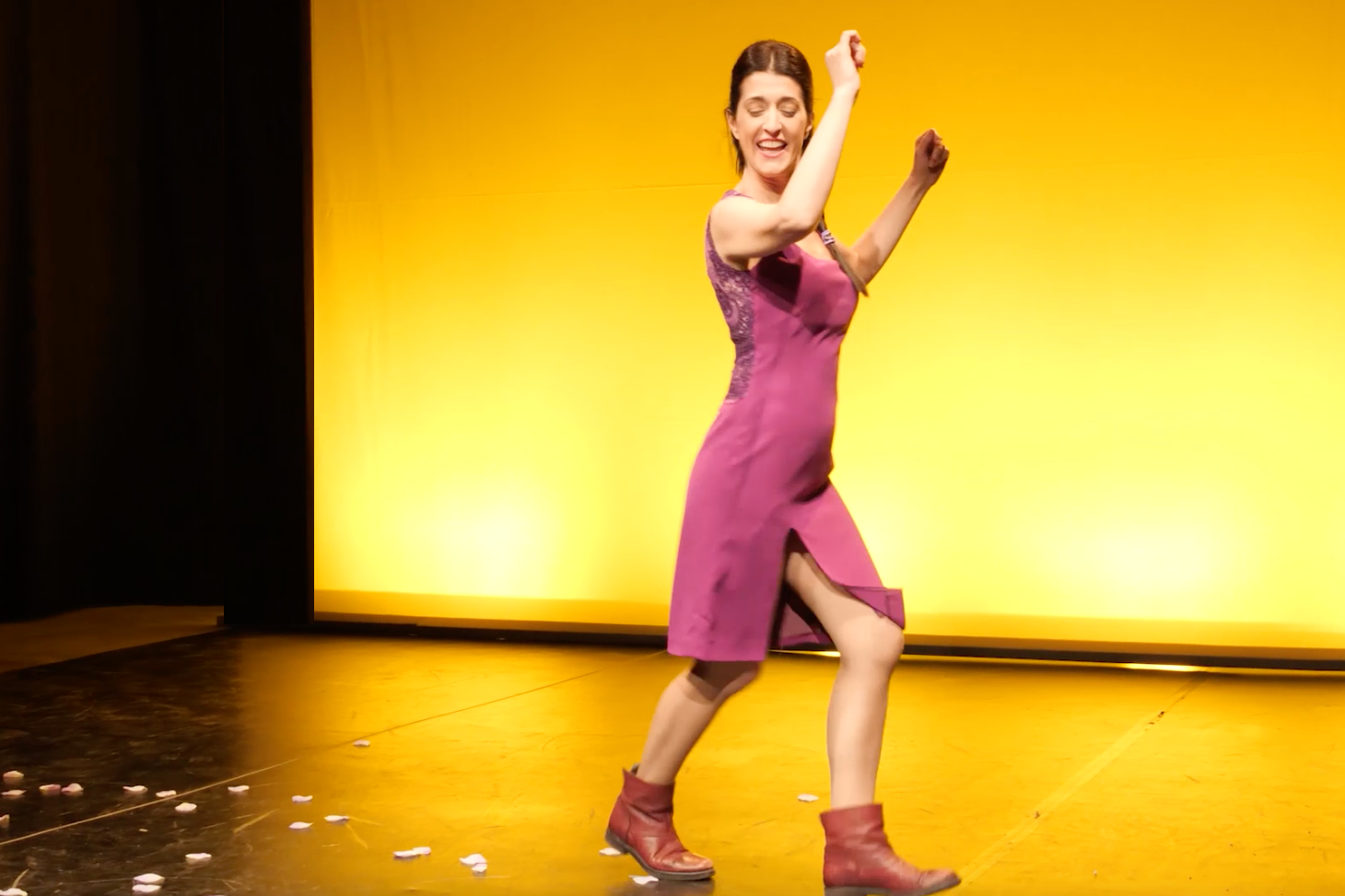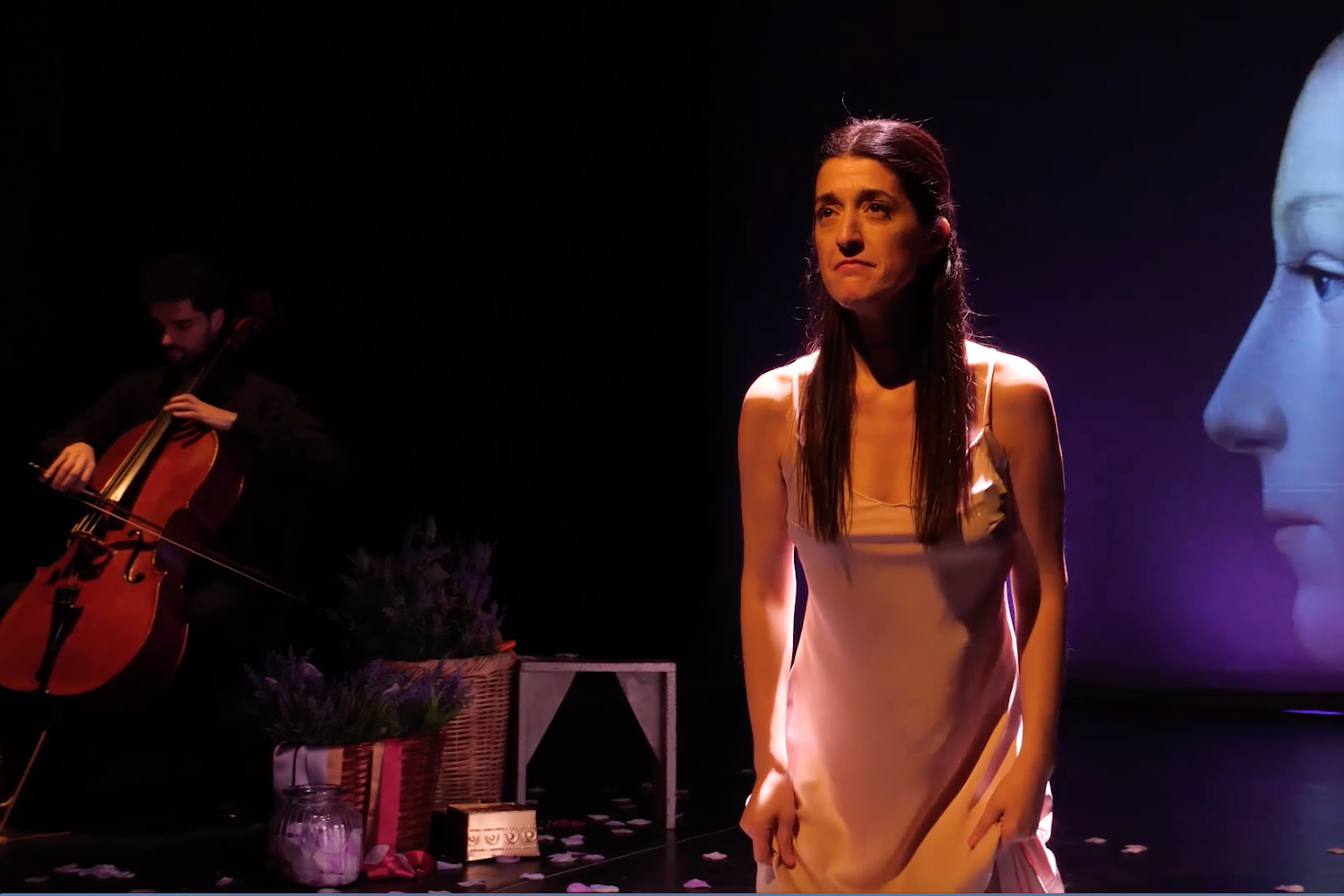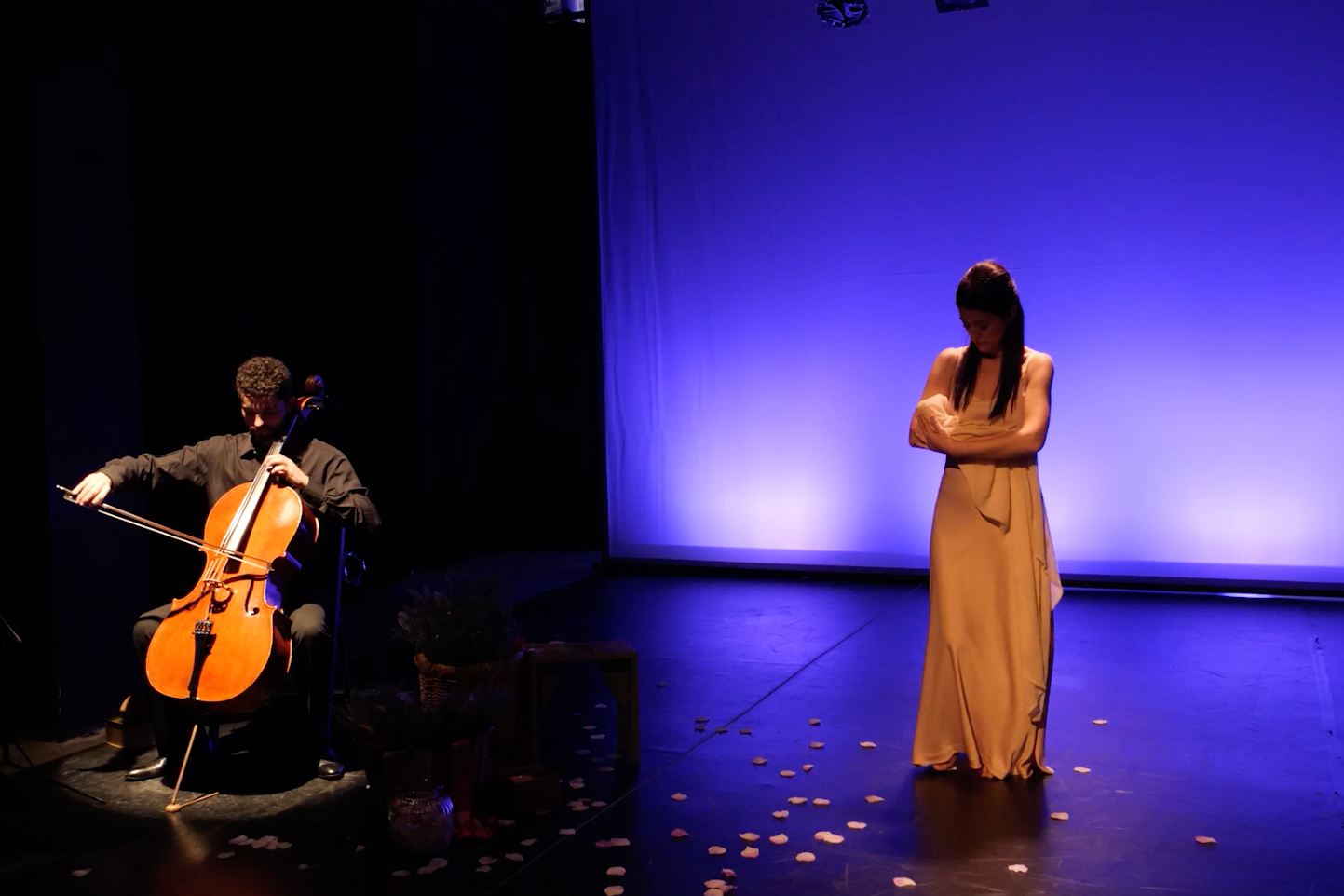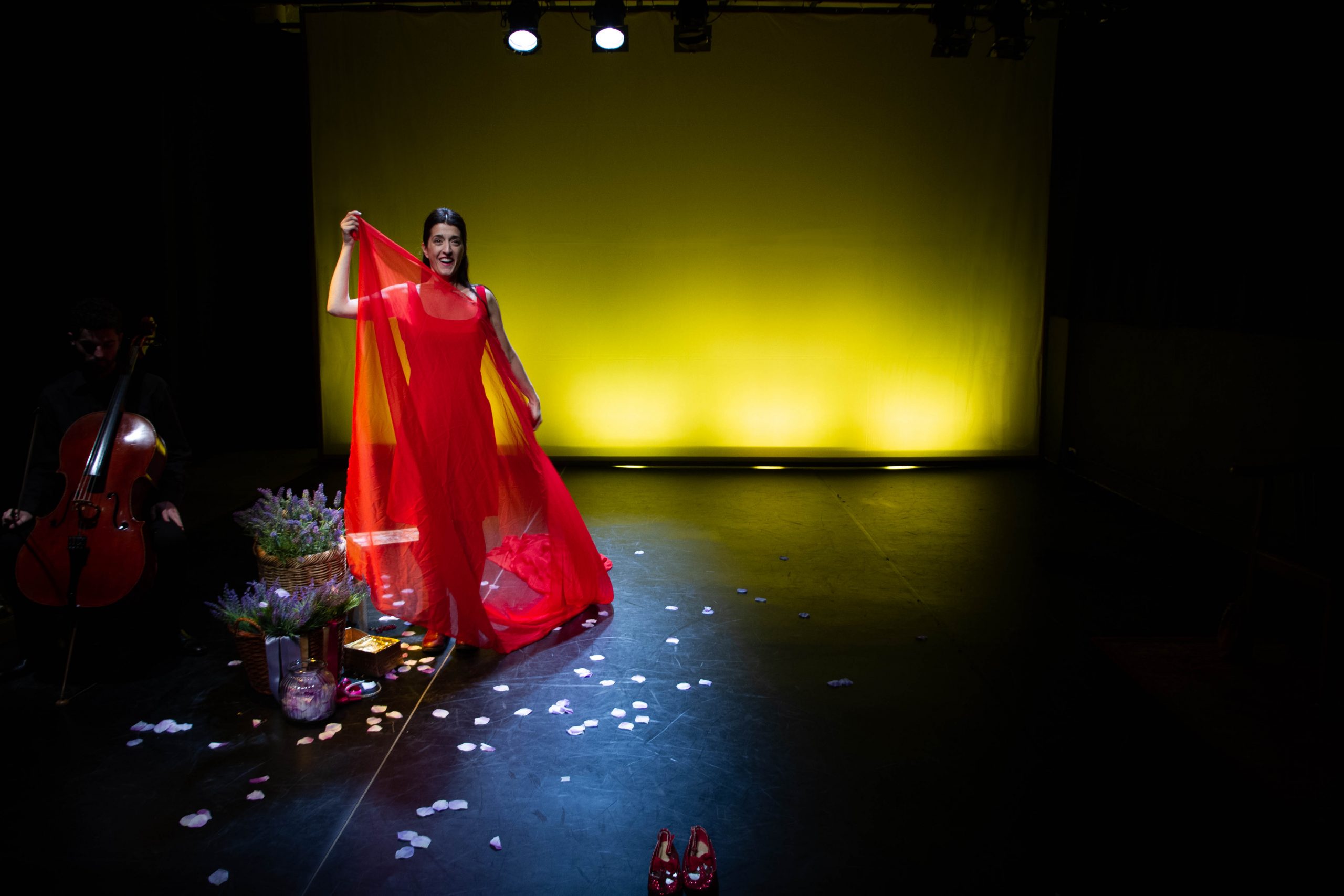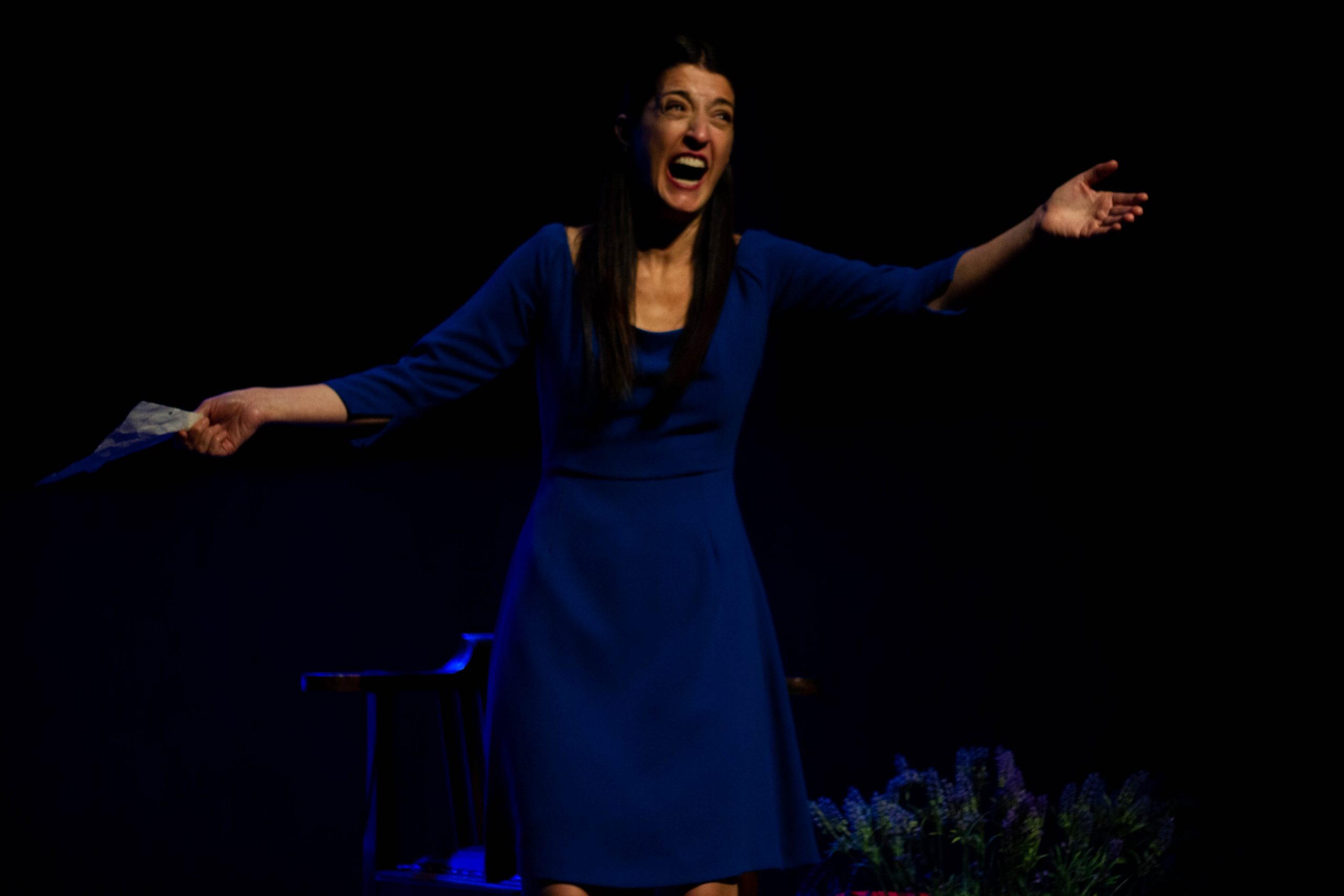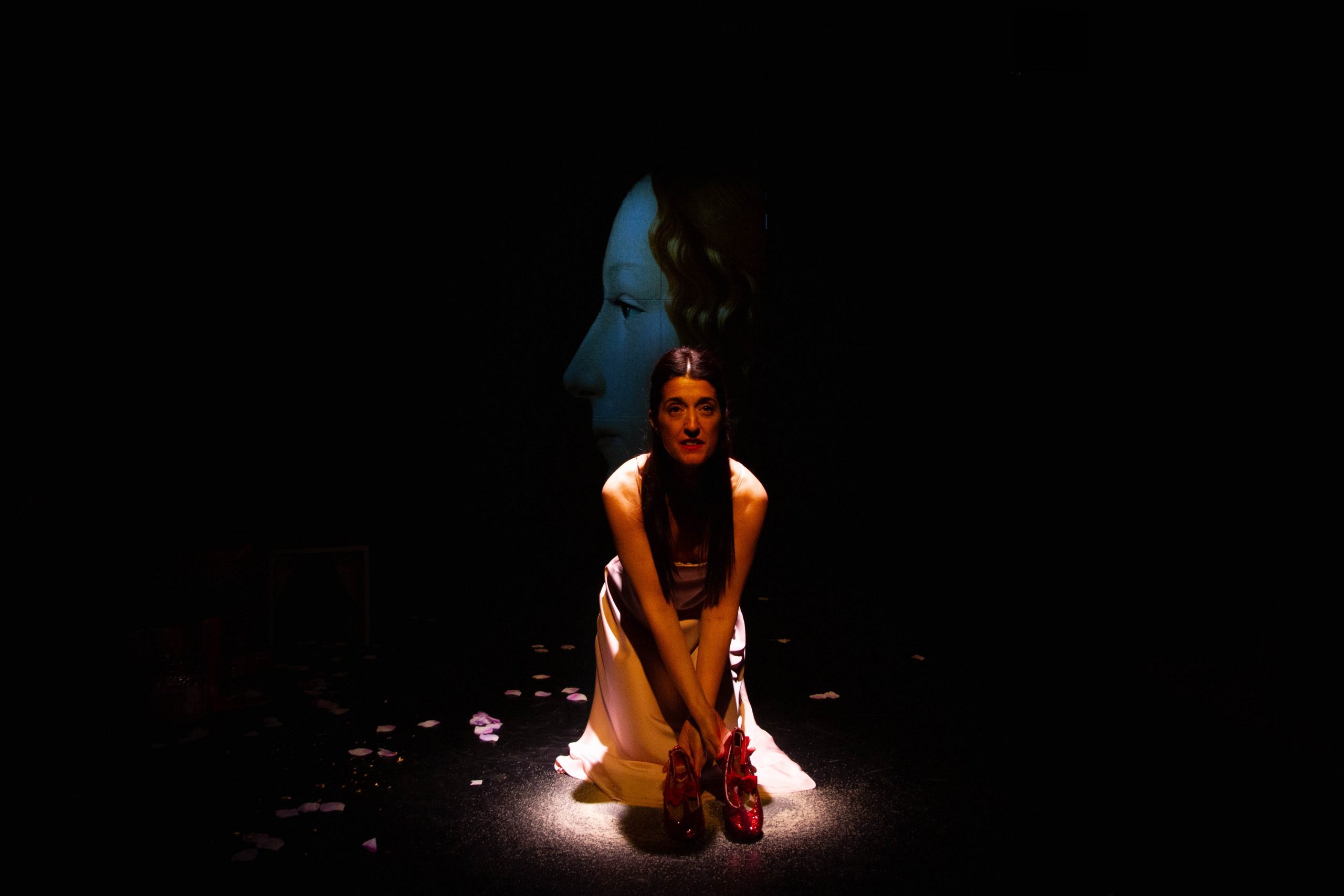From Hamlet’s castle in Denmark, Angelica, Juliet Capulet’s wet nurse and nanny, looks back with humor and tenderness on a life forever marked by the tragic death of the young woman she nourished and helped raise.
Through vivid monologues that will move you to tears and have you roaring with laughter, Angelica gives us new perspectives on Shakespeare’s iconic character.
Accompanied by live cello music, we learn of Juliet’s girlhood shyness, her emerging adolescent independence, and the first stirrings of her love for Romeo. Interwoven is the story of Angelica’s own marriage and life, and her struggle with the question that will always haunt her: why she was unable to save the person she loved most dearly.
Written and performed by the versatile and affecting actress Verónica Isola, this highly original one-woman work offers us unforgettable lessons in overcoming loss, in the importance of forgiveness and in the enduring power of love.
The character
Angelica tells her unique story with feeling, with honesty and, most notably, with an earthy and unwavering sense of humor. A spirited and affectionate woman, Angelica’s lively personality turns the inevitable tragedy of Juliet’s life into a touching and often amusing reflection on resilience.
Angelica’s partner throughout is Gulliver, her invisible dog, with whom she shares this story: “My loyal friend, my travel companion”. Angelica also speaks to the departed: to her late husband Robert, to Romeo, and, of course, to her beloved Juliet.
The staging
Using only the most minimal of props – a chair, a ribbon, a clutch of lavender — the audience is drawn into the colorful world of Angelica. The live cello music of Nico Cobo provides beautiful accompaniment to the work, reinforcing its timeless themes.
Setting
Due to its space and time structure, the play moves seamlessly between three spaces:
– The past, in Verona, Italy
– The present, in Elsinor, Denmark
– Juliet’s inner space, which lives on only in Angelica’s mind and soul
From these different spaces, Angelica speaks to Juliet and to the other people who have populated her life.
Costumes
Angelica’s costumes are conceptually timeless, just as the themes of love, loss and forgiveness are timeless. However, because of its beauty, the chromatic pallet of the Renaissance has inspired us to use some of its characteristic colors: red, coral, gold and cobalt blue.
Angelica’s clothing also dignifies the role of wet nurses and highlights the importance of women in general in Renaissance society. She is not dressed as an impoverished maid, but rather as a simple but elegant woman who enjoys many pleasures in life, including aesthetics.
A multilingual play
English is the main language of this version of the work, but it also contains sprinklings of French, Italian and Spanish. The intermingling of languages brings rhythm, color and musicality to the play. The primary language of the play is more poetry-driven than the secondary languages, whose use adds colloquial touches to the monologues.
Linguistic plurality is another typical element of Renaissance Italy and, although the play is not staged during this historical period, we have been keen on retaining this principle, which continues to be so relevant today.
Fragments of the Play
For here it seems that love causes more war than hate non si può che credere male. So I ask you if my child is still a virgin, capito?
If you abuse her innocence, you are committing a vile and shameful act and this will have serious consequences, capito? And you will never recover as I will start by burning the soles of the feet, then you will be crushed I will rip off your nails. Then I will have you raised up, until I am level with your most vital organs, and gradually cut off each manly part… capito?
I have my eye on you, ojo al piojo! Now, only on these conditions may you seek your treasure, capito?
Never, never will I forgive his cowardice, abandoning my child in the cemetery. Is that a friar? Is that a man of God?
The Cast
Verónica Isola, actress, author and co-director
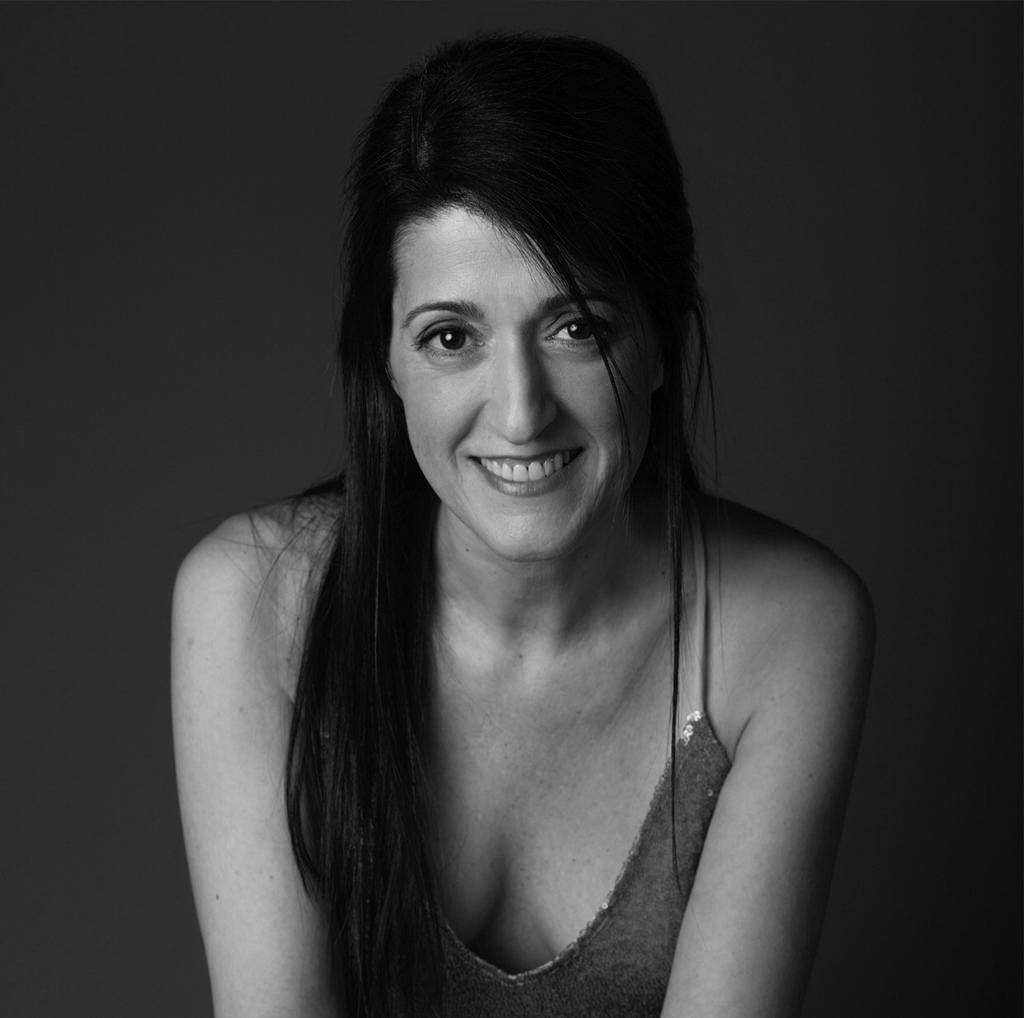
Verónica graduated from the National University of Arts (Argentina) as an actress, where she obtained her degree in Dramatic Art with honours.
She also studied in the Method of Physical Actions at the Buenos Aires Drama School (Escuela de Teatro de Buenos Aires), where she was taught by Professor Raúl Serrano.
She has lived in Rome and Berlin. She settled in Paris for 15 years, where she worked with Arianne Mnouchkine of the Théâtre du Soleil and with Mamamadou Dioume from Peter Brook’s company, where she performed in Beckett’s Endgame and in Shakespeare’s The Tempest.
She performed in Racine’s Andromaque, directed by M. Boyer, as well as Ionesco’s The Lesson, Dostoyevsky’s White Nights and Maupassant’s The Night, all of which were directed by Philippe Eretzian.
She performed B.M. Koltes’ Return to the Desert, directed by T. Gomme; Colette’s Stories, directed by S. Lastreto, performed at the Cartoucherie. She performed on several occasions at the Festival d’Avignon in Calígula by Camus, directed by N. Decker.
She is able to perform in Italian, French, Spanish, English and German.
She has participated in several short films, including “Miradores” and “El inmortal” in Buenos Aires. “Trois sequences”, “Le planning familial” in French and the long film “Dans le rouge du couchant”, selected for the San Sebastian Film Festival, where she acted with the actress Marisa Paredes.
Recently, she did a work about Shakespeare with Dugald-Bruce Lockhard, from the Propeller Theatre of London.
Verónica produced her play under the title Shakespeare, the Wet Nurse and her Dog. Last year, she was invited by the dramatist Paco Zarzoso to perform in Valencia at the Sala Ultramar.
She has recently performed at the “Nau Ivanow”, one of two main contemporary creation theatres in Barcelona.
Nico Cobo, cellist
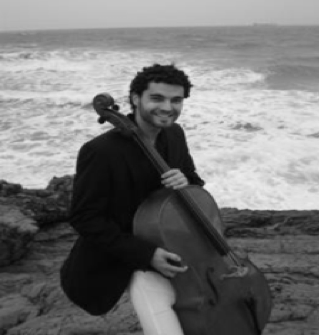
He began his musical studies at the Music School of Tarragona in 1995 the age of seven. He obtained his degree at the “Catalonia College of Music” (ESMUC) with Prof. Cristoforo Pestalozzi, with honnors. He finished the Master at the “Conservatorium van Amsterdam” with Prof. Dimitry Ferschtman.
As a solist, he performed the Concerto in C Major by Haydn with Virtèlia Chamber Orchestra (LCO) in 2007, the Elgar Concerto with the Youth Orchestra Intercomarcal (Joico) in 2012, the Vivaldi Concerto in C minor with Chamber Orchestra of Tarragona (OCTA) 2014 and the Saint Saens concerto with the Orchestra of the University of Rovira i Virgili Taragon.
He participated in the follows orchestras:
National Youth Orchestra of Catalonia (JONC), National Youth Orchestra of Spain (JONDE) Jonge Nederland Orkest (NJO), Schleswig-Holstein Musik Festival (SHMF) and Pacific Music Festival (PMF) playing large halls across Spain, Switzerland France, Germany, Holland, Denmark and Belgium.
Monica Aybar, co-director

Degree in Dramatic Art from the “Institut del Teatre”, Barcelona 1996.
She has taken part in “L’inspector”, “Dissabte, diumenge i dilluns”, “Primera plana”, “En pólvora” -as a touring company- and in “El alcalde de Zalamea”,directed by Sergi Belbel. “La plaza del diamante”, “La máquina de agua” by Alex Rigola, “Don Perlimpín y Belisa en su jardín” by Genoveva Pellicer, “La moral de la señora Dulska” by Jaume Melendres.
She has been part of the “Parracs” company in the shows: “Parracs”, “Perversions” and “Violació de limits” directed by Joan Castells.
In her role as director, she has produced “Davant l’Empire” by Octavi Egea, which was awarded the “Premio popular” in the “17a Muestra de Teatro de Barcelona”.
Pol Diggler, Film director, producer and audiovisual creator

Paul Diggler graduated in Audiovisual Production at “EMAV Escola de Mitjans Audiovisuals”, in Audiovisual Editing at “ESPAI” and in Advertising Creativity at “Brother Ad School” in Barcelona. He has been self-employed for 6 years. In 2014,ç he started up the Fergaht label, he directed productions that have been screened over more than 300 festivals, and won 80 awards worldwide.
Among his best-known works: Director’s Cut: gathering 80 selections, 20 awards.IP-IS: gathering 25 selections, 10 awards. Horrorscope: gathering 135 selections , 40 awardsIn 2018, he joined the production company Punt TV, where he fulfilled video editing, creativity and camera operator tasksIn 2019, he launched together with two colleagues, “Empanada Cultural”, a weekly radio broadcast on films, series, comics and video games hosted humorously and boldly.
Natàlia Ramos Lalloz – Design and theatre lighting technician
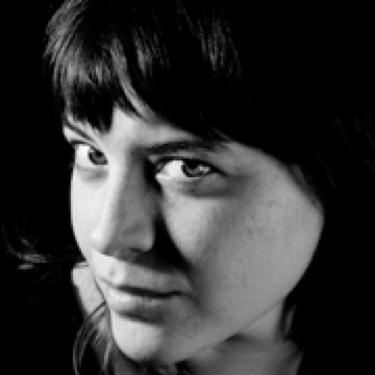
She followed a technical photography course at the Escuela Aula d’especializació Fotogràfica. She obtained the photo-journalism speciality at the Institut d’Estudis Fotogràfics de Catalunya (Barcelona, Spain).
In 2010, she obtained her title in lighting at the Escola Superior de Tècniques de les Arts de l’ Espectacle (Barcelona, Spain).
She started her career as a lightning technician and designer at the Teatre Bartrina (Reus), TAS (Salou), Sala Trono (Tarragona), TAG (Vendrell), Nau Ivanow (Barcelona), Teatro Capitol, Teatre del Raval (Barcelona), Teatre Principal de Vilanova, Teatro Veleta (“Festival off” de Almagro), Fabra i Coats, , Teatre Tívoli, Festival GREC de Barcelona, all in Spain.
In her role as lighting technician, she has recently worked for laSal, by Eva Hibernia, directed by Cristina Lügstenmann and INDEXICAL [space], by HandMadeDanse. She is currently developing her role as a lighting technician in Germans de Sang, directed by Ricard Reguant at “Teatro del Raval”.



